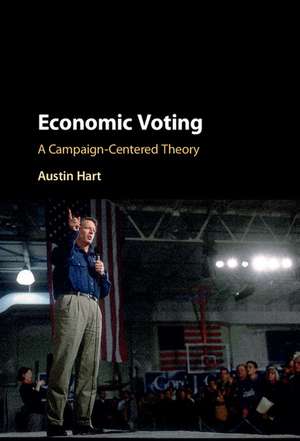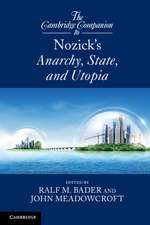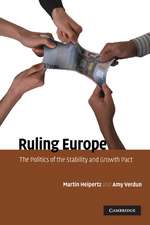Economic Voting: A Campaign-Centered Theory
Autor Austin Harten Limba Engleză Hardback – 31 aug 2016
Preț: 693.89 lei
Preț vechi: 779.66 lei
-11% Nou
Puncte Express: 1041
Preț estimativ în valută:
132.77€ • 138.100$ • 109.86£
132.77€ • 138.100$ • 109.86£
Carte tipărită la comandă
Livrare economică 07-21 aprilie
Preluare comenzi: 021 569.72.76
Specificații
ISBN-13: 9781107148192
ISBN-10: 1107148197
Pagini: 232
Ilustrații: 24 b/w illus. 27 tables
Dimensiuni: 160 x 237 x 20 mm
Greutate: 0.51 kg
Editura: Cambridge University Press
Colecția Cambridge University Press
Locul publicării:New York, United States
ISBN-10: 1107148197
Pagini: 232
Ilustrații: 24 b/w illus. 27 tables
Dimensiuni: 160 x 237 x 20 mm
Greutate: 0.51 kg
Editura: Cambridge University Press
Colecția Cambridge University Press
Locul publicării:New York, United States
Cuprins
1. The economic voting puzzle; 2. A campaign-centered theory of economic voting; 3. Can ads prime the economy? How would we know? US 1992; 4. The impact of a surge in economic messages, Mexico 2006; 5. The absent economic message, US and Mexico 2000; 6. The campaign-centered model in comparative perspective; 7. Conclusion.
Notă biografică
Descriere
Highlighting the power of campaign strategy, this study challenges the notion that economic performance necessarily drives electoral outcomes.
















